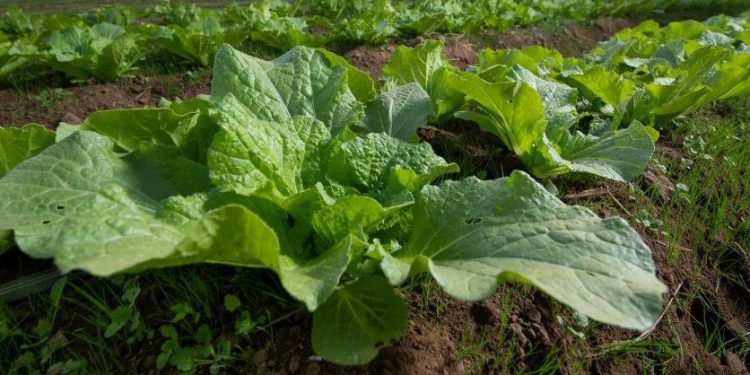Extreme Temperatures Impact Crop Quality and Shelf-Life on the West Coast
A recent heatwave that swept across much of the West Coast last week has led to concerns about the availability and quality of various fruits and vegetables. According to Markon Cooperative, a prominent foodservice company operating in the U.S. and Canada, several row crop vegetables are likely to exhibit quality and shelf-life issues due to the extreme temperatures.
Impact on Crops
The excessive heat, which saw temperatures soar to 110°F in parts of the southern Salinas Valley, has caused noticeable stress on crops such as lettuce and tender leaf varieties. Markon reported signs of dehydration, increased insect pressure, internal burn, yellowing leaves, and weakened texture in these crops. As a result, their shelf-life potential has decreased significantly, prompting Markon to recommend ordering these products for “quick turns” to ensure freshness.
In response to the heatwave’s impact, Markon’s inspectors have been vigilant in rejecting crops from fields exhibiting elevated issues. Harvesting crews are working diligently to remove damaged leaves and minimize defects in the produce that is being collected, as stated in a press release from the company.
Broader Agricultural Impact
The heatwave’s effects were not confined to the West Coast. The extreme temperatures shifted to the East Coast earlier this week, placing around 100 million people under heat alerts across several states, according to the Washington Post. The high temperatures have had a nationwide impact on crop yields, leading to limited availability of certain produce.
In New Jersey, the dry weather and unusual heat have resulted in smaller-sized cabbage heads. Additionally, a gap between growing seasons in eastern and western North Carolina has contributed to a shortage of cabbage along the East Coast. California-grown broccoli has also experienced minor aesthetic defects such as yellowing, with these issues expected to worsen in the wake of the recent heatwave. Yields from other crops, including California-grown pears and berries, have been delayed or reduced due to the heat.
Moving Forward
As the agricultural sector grapples with these challenges, Markon Cooperative and other industry stakeholders are focused on mitigating the impact on supply chains and ensuring that consumers continue to have access to fresh produce. The situation underscores the importance of adaptability and resilience in farming practices, especially in the face of increasingly unpredictable weather patterns.
For those looking to stay updated on agriculture news from coast to coast, Markon’s developments and other related stories are accessible through platforms such as Agri-Pulse, which offers a free month of news updates for new subscribers.
Error




